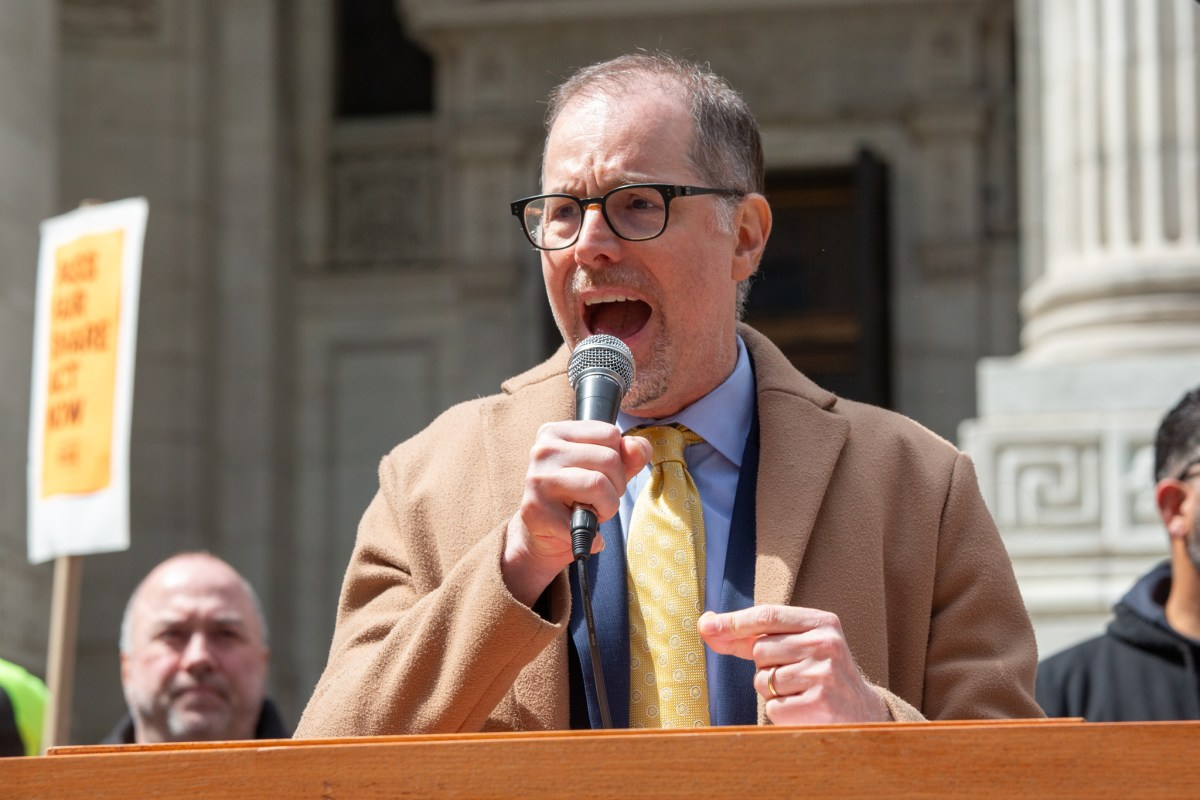Reason #1,001 For Landmarks To Exist
Blogger Transfer is hatin’ this building and so are we. Now if someone could just tell us where it is. Answer: Wyckoff between Smith and Court. Thanks, Peter. Bad Volume [Transfer]


Blogger Transfer is hatin’ this building and so are we. Now if someone could just tell us where it is. Answer: Wyckoff between Smith and Court. Thanks, Peter.
Bad Volume [Transfer]





(referring to anarchocapitalism again)
See, that’s the problem with theory.
Looks good on paper.
No way to get there from here.
Still does not account for what we know of humans as both rational and irrational beings.
There will always be Caesars with ambition (meant in the sense it was originally offered).
Other countries have tried to implement a ground-up overhaul toward other theoretical ideals.
Migration is not realistic, and the system that is finally implemented is a poor shadow of what it was meant to be, ripe for domination and abuse by charismatics, and full of a lotta pain for everyone else until the next violent overthrow.
Theory does not have a direct map to reality. It must first travel across the peaks and abysses of Man.
By the way, Rousseau and Locke were precisely what I was pointing to in asserting the reasoning behind the social contract here, as both had a considerable amount to say on the matter.
As for the smoking topic, I think we both cross paths there at JS Mill’s harm principle, just (as you mention) have different beliefs about what might be done about it although I, too wish that gov’t could just declare it illegal with cause (not without). On the bright side, gov’t induced intervention has brought about potent education and media campaigns in recent years since mid-1990s tobacco trials, and new numbers in this week actually suggest that NYC teen smoking adoption fell by 50% year-to-year perhaps aided by those efforts.
For every bad example of a person, we can also point to Spitzer’s work, campaigns like this, and funding grants for public broadcasting where Adam Smith’s hand is mostly unseen because it’s mostly not there, at least not offered without huge editiorial sellouts to degrade the quality of what we’d get as a result.
Back to the topic of this thread, landmarks, given all we have discussed above. In your opinion, should a government be able to regulate, limit and oversee building and development in a neighborhood? (bearing in mind the implication that local residents pushed to attain landmarks priotection in the first place, and then the government just becomes the legal agent of that)
The problem I have with anarchocapitalism is that it does not seem to me to be a stable system but one of constant cataclysm, churn and struggle, entrusting greater power to those that emerge at the helm of the largest of businesses at the expense of the individual. This sounds like Ratner’s end-runs writ large, happening everywhere in different local markets, and now with an army to back him up.
Call me nuts, but if one steps back from the books for a moment and pictures a real life, realistic evolution of that that fairly accounts for humanity’s historic propensity to do both good and bad for community and self….if you really picture what that would look like…to me it might look more like what was observed under mafia-controlled community+industry.
Regional struggles pitting one regional boss/family (leading company) against another in endless turf wars just as market competition, armed with military force, would dictate.
Citizens in one company’s turf pressured to kick in extra to the company, and to maintain total allegiance to them or else their safety and business prospects would be threatened. Takeovers, mergers and acquisitions, bankruptcies and/or perhaps just market share erosion would suddenly have far more volatile, physical implications.
Business, originally assuming captialism, now limited to the one local supplier pushed by the main potentate, who charges higher prices and is not held to deliver high quality goods (won’t the benefits of competition actually suffer here?)
I have a hard time seeing that as a stable, sustainable system given what we know about the reality of the business world and the fallible, often irrational humans that direct and work in them.
The current business marketplace has glaring examples of why government has a role in oversight (hard to miss in recent years, with new reasons almost weekly to keep Elliot Spitzer very busy), and why individuals and their companies alike prove again and again that reality is a vast departure from theory.
Subjecting all these other levels of the system fully to local market forces seems both cataclysmic and unthinkable.
Just read your latest posts.
I would like to believe that individuals could manage this themselves, but I feel that history has borne out otherwise and also that such exchanges on an individual level probably just wouldn’t scale to beyond local/rural practice, and certainly not to the current orders of magnitude and complexity beyond that given population sizes, technologies like cars, rails/container-shipping, boats, planes, internet etc that transport the masses of far-flung lands to being next-door impacted neighbors. Contrasts of demand, scarcity, haves, have-nots, dreams of more, competition, defensive tactics, offensive tactics and all the material things flowing between are a lot more complex when you increase the labor factor of production and decrease the land/space factor of production. I just don’t see it possible to go back to a more simple model that seems to presume and rely upon more space, smaller scale and even distribution of resources.
I am not a pro-government type per se. I am for some, limited government, just enough to maintain rules set to balance individual citizens’ interests, and also enough to be able to put business and industry in its place when it rears up with unfair advantage against the citizens that allow it to exist.
I personally do not think that any social order above a certain size is possible without some government, as size and scale bring other challenges.
On the flip side of that, I am horrified at the size of current government’s crony-bloat, which is just affirmation for me that the larger it gets, the more it conversely falls prey to large interests, and actually comes more to resemble industry and big business than anything else. This has current bearing with respect to the energy industry, pharmaceutical industry, credit/finance industry and others that have effectively bought government wholesale at the expense of the people (in so many ways…).
And, to be germane to this blog, that does apply to the eminent domain issue and local dwellings…large business interests have exerted considerable influence and been allowed to cut corners and bend the definition of various laws to get what they could not otherwise.
Even if some proposal for Atlantic Yards was one that everyone actually wanted, the area in question was not all blighted as described (but perhaps some parts of it came close to that several years back when this came up), and to make an end-run around everyone’s rights because a few areas may have been left abandoned and with high crime and drugs sets a dangerous precedent.
Btw, I am still seeking expanation for how “rights” can exist without a common understanding for what they are (which is a major function of any social contract or body of laws).
Also, you argue for unbridled freedoms and liberties. Can you envision any circumstances where this may be destructive to more than the individual actor?
It seems a bit naive at this point in history (even as recent as seeing the individuals in the present administration given extra liberties to act in their own self-interest) to suggest that individuals will always act in a manner beneficial to the collective of others around him, or even to himself? Hobbes, Freud etc. have yet to be disproven there, if I am not mistaken. If I am mistaken there, please elaborate.
Also, you are a proponent (as I) of individual rights. So, regarding the subject of “rights” in general, please explain how individual rights are not, in fact, just limitations upon others ability to act freely toward them?
In a nation of one, individual rights = complete freedom. In a nation of two or more, where the intentions and actions of each must be balanced against those of all others, one of the above is sacrificed for the benefit of the other.
Please correct me if I am wrong, but how can one espouse both a basis of individual rights as well as complete liberty and freedom to do whatever one chooses, as the two will inherently collide. Now, even if you figure out a good fit for balancing individual rights against individual freedoms, how will you communicate the exact nature of how that balance works (if not by laws), how will any of it work without someone as arbiter and enforcer (if not government) and who will you select to keep an eye on things and maintain stability while you are out building a life that rests on expectation of those principles and that stability (if not other citizens, who being human, do run the risk of abusing that power and privilege of management toward their own self interest at the expense of others?
Good people come and go, no one remembers them, it is only the bad people that remain in our minds, or so one would think if one cast the entire history of governments and our government to be remembered merely for the abusers, even if they are the ones currently in office and eminent domain is the hot button issue for a few neighborhoods in this country.
So, is it sensible to throw it all away like that instead of realizing that no system proposed in theory behaves as planned when human self-interest is involved, and that perhaps this is the closest we can come, doing well in some cycles, abysmally in others, to make this whole thing work for everyone?
Not to get too far off topic here, but, if smoking is so bad (which all evidence indicates it is) it should be illegal, like drug use. Until such time as it is, one should be allowed to smoke as much as one wants on one’s private property (with rental property of course having rules set by the owner, and condo/co-op rules decided by vote).
But I agree, to put an end to this nonsense, smoking should just be illegal. Of course that will never happen for obvious economic reasons.
Also, so why is it that you choose to live here and benefit from everything that entails in practice (relative to, say..Rwanda or heck, even Haiti or other less orderly places), but then contradict yourself and reject it all for the sake of self-righteous argument?
Live one way, talk another. Not sure what to believe from you.
Hi. Do you claim to own anything?
Thankyaverymuch. Yer done.
“Without calling to question the scientific evidence that demonstrates the link between secondhand-smoke and personal injury, it still would not invalidate one’s right to befoul their lungs on their private property.”
Classic denial, would be hilarious if the realities of it weren’t tragic as they are.
So, two points to easily nip there:
I) calling into question whether cigarette smoke causes illness (and, duh..second hand smoke is both the raw smoke that sputters from the cigarrette and fills the room as well as whatever the smoker exhales):
PUHH-LEEZ. The tobacco companies have already been shown in court to have concealed internal documents that admint as much, and it is suspiciously only those with selfish interests that claim cigarette smoke is perfectly healthy, not a harm to one’s health.
II) Freedom to do whatever one wants on his/her personal private property (made his/her property in the first place by the social contract, btw, duh..can’t have it both ways):
First, this was not the argument at hand, which was of bars/restaurants that are private establishments, where a key factor is a few persons violating the health interests of many other persons present (not a single individual’s right to do so without the presence of others to harm)
2nd on that point, no, a person does not have unlimited freedom to do whatever they want on their private property. Many freedoms, yes. Unlimited, definitely NOT. A person cannot kill other people or build bombs or pour toxic waste or contaminants into the ground on their private property. I could go on…but again, it really sounds like you need to be less selfish and petty and go back to school to study the challenges of managing narrow self-interest versus order, stability and function among the population at large.
Even cavemen had social conventions for the good of their people, but somehow you have failed to reach even that level.
I said I had only two points, but whee,m you need all the help you can get with the stuff any citizen should already have learned long ago so here goes:
III. Your example fails because it is not merely one person in a vacuum, “befouling” their lungs. Even if no one else is present and exposed, do you have any idea how much smokers have driven up the demand on healthcare in this country, crowding the system with people either very ill or just mildly ill with emphysema etc or even just people whose systems are prematurely weak for their age due to the abuses of cigarette smoke, either smoked by them or taken in second-hand?
They should ad a $50 *additional* tax to every pack of cigarretes, just to cover the escalating costs on the healthcare system (which is passed along to us the consumers, again, DUH) on the back end.
That would only put a drop in the bucket against actual costs, but at least it would be a fairly-targeted excise on the very headwaters of the problem.